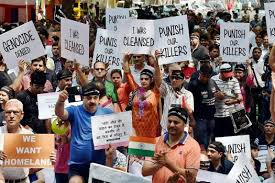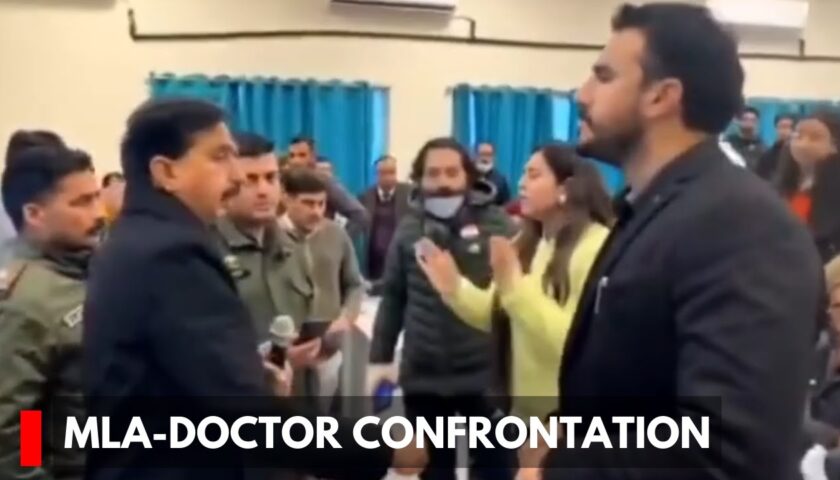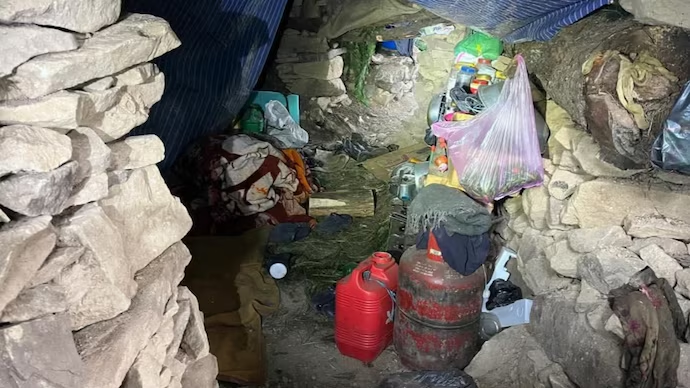The year 2017 started with a hope for 3.5 lakh displaced Kashmiri Pandits after the Legislative Assembly unanimously adopted a resolution calling for their return to the Valley and setting up of transit camps for their resettlement, but at end of the year, promises have remained just a political rhetoric.
As months passed by, hopes turned into dejection as the state PDP-BJP coalition government and the Centre led by Prime Minister Narendra Modi failed to come up with any concrete policy for the beleaguered Hindus of the Valley living as refugees in their own country since 1990 after the eruption of separatist insurgency in Kashmir.
Although the state and Centre announced several confidence building measures for people of Kashmir, especially after the appointment of Dineshwar Sharma as the special representative for Jammu and Kashmir, there was no mention about the displaced Pandits, who too are victims of Pakistan-sponsored terrorism since 1990.
While the BJP-led government at New Delhi backtracked from its earlier stand on establishing separate colonies or transit camps for Pandits, the state government is silent on the plan to implement the recommendations of rehabilitation package announced in 2008 by then Congress-led UPA government.
Another setback for the community was refusal of the Supreme Court to re-open investigation in 215 cases relating to the murder and massacre of Pandits by militant groups during the 27 years of militancy. Family members of hundreds of victims are waiting for justice as successive governments have not pursued the cases.
The government had also claimed that the state had identified 723 kanals of land in various districts of the Valley to set up transit accommodations, but there was further no headway in the project. In fact, there has rarely been any mention of the plan since separatists and radical groups in the Valley have threatened to use violence to stop such process.
Nearly 2,200 youths engaged under the employment package who volunteered to return to the Valley in 2010 continue to live under miserable conditions. The government failed to complete the construction of more than 4,000 housing units at Vessu and Mattan in Anantnag and Sheikhapura in Budgam. Employees are living in makeshift transit camps without basic infrastructure and majority of them were damaged by mobs during the five-month-long unrest in 2016.
The battle to get their properties back from land grabbers continued for hundreds of Pandit families, who are living in camps in Jammu. The administration remains in denial, while the government fails to implement the provisions of the Migrant Immovable Property Act, 1997, passed by the Legislative Assembly to safeguard the properties of minorities.
Although the community remains on the edge due to the Kashmir conflict, the silver lining at the end of the year was success of Kashyap Neha Pandita, who despite poverty and hardships in migrant camps, cleared the Kashmir Administrative Service examination, giving a hope to hundreds of youths.
Promises not kept, Pandits spent another year in exile




